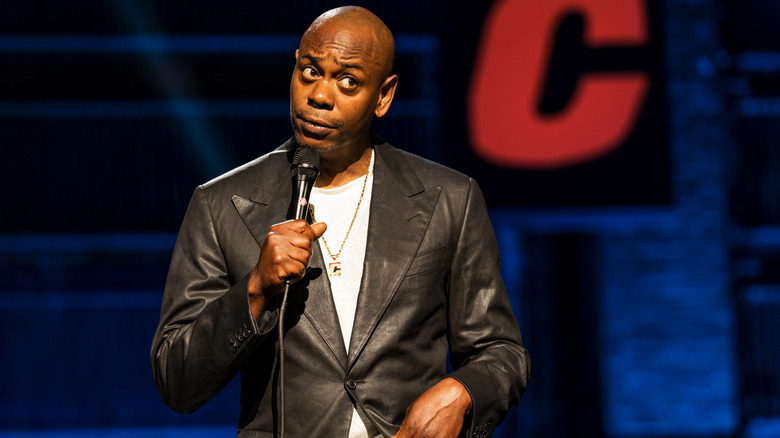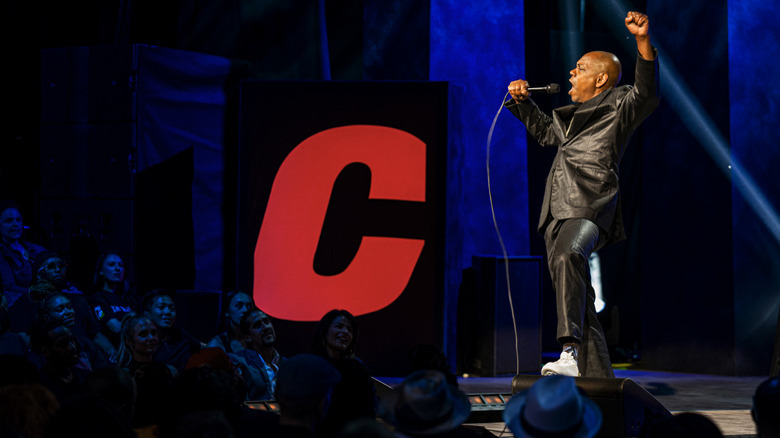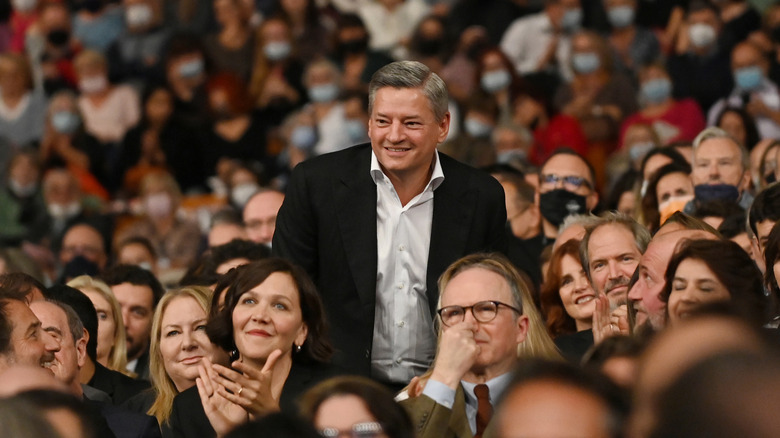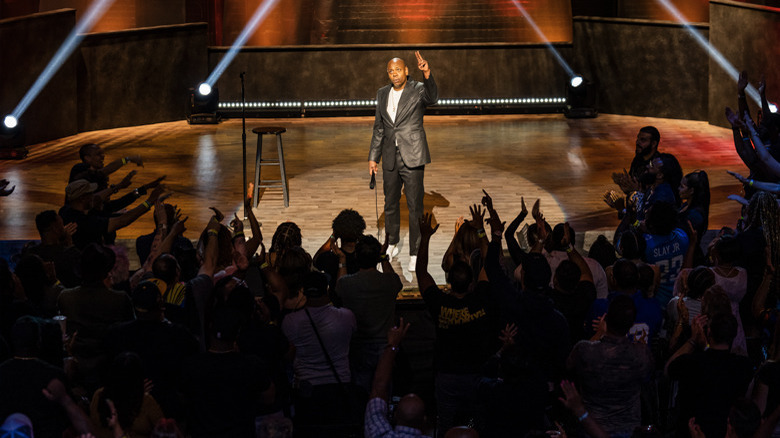Netflix Suspends Three Employees, Struggles To Understand Fallout From Dave Chappelle's The Closer
We don't typically write about small-scale suspensions or firings inside major tech companies, but a recent set of suspensions at Netflix warrants some exploration. Let's take a quick look at what happened recently inside Hollywood's biggest streamer, and how it could have consequences that extend far beyond the confines of the entertainment industry.
Who Was Suspended?
According to Variety, Netflix has suspended three employees for crashing a virtual meeting of Netflix executives. One of those employees is Terra Field, a senior software engineer who identifies as queer and trans and who has openly criticized Dave Chappelle's new Netflix comedy special, "The Closer." That special has sparked justified outrage for the way Chappelle continues to punch down at the LGBTQ+ community in general and trans women specifically, and Field recently tweeted a lengthy and impassioned thread pointing out why Chappelle's so-called "jokes" about the members of that community can have serious and deadly consequences.
Netflix has vehemently denied that the suspension has anything to do with Field's tweets calling out Chappelle's new special ("Our employees are encouraged to disagree openly and we support their right to do so," a spokesperson for the streamer told Variety). However, the company has specifically said the suspension came as a result of Field and her two unidentified colleagues appearing at a virtual meeting of company executives to which they were not invited. Another Variety reporter noted that Field and the other two suspended employees did not speak during the meeting. An investigation is currently being conducted into the three people who crashed the meeting.
Ted Sarandos' Response
A few days ago, Netflix co-CEO Ted Sarandos sent a memo to employees specifically addressing the controversy from the latest Chappelle special.
"Chappelle is one of the most popular stand-up comedians today, and we have a long standing [sic] deal with him," Sarandos wrote. "His last special 'Sticks & Stones,' also controversial, is our most watched [sic], stickiest and most award winning [sic] stand-up special to date. As with our other talent, we work hard to support their creative freedom – even though this means there will always be content on Netflix some people believe is harmful, like 'Cuties,' '365 Days,' '13 Reasons Why' or 'My Unorthodox Life.'"
By mentioning "Cuties," a French film about the hyper-sexualization of children which was willfully misread by right-wing pundits in order to drum up controversy, Sarandos is trying to make "The Closer" seem like a project that's taking a creative risk to get its point across.
But that's not what's happening here.
Chappelle has a history of saying toxic, misguided, misinformed, and downright dangerous things about trans people on stage, and "The Closer" is just the latest example of Netflix giving him a massive platform to spout those views. None of this even addresses the fact that the reason people were concerned about "13 Reasons Why" and its depiction of teen suicide was justified by a study which showed that seeing imagery like that in popular culture actually causes spikes in teen suicide rates, which is an entirely different category than what we're talking about with Chappelle. But that's another story altogether.
The Fallacy of Pushing Boundaries
Sarandos' memo also included this paragraph:
"Several of you have also asked where we draw the line on hate. We don't allow titles Netflix that are designed to incite hate or violence, and we don't believe The Closer crosses that line. I recognize, however, that distinguishing between commentary and harm is hard, especially with stand-up comedy which exists to push boundaries. Some people find the art of stand-up to be mean-spirited but our members enjoy it, and it's an important part of our content offering."
And this line:
"Externally, particularly in stand-up comedy, artistic freedom is obviously a very different standard of speech than we allow internally as the goals are different: entertaining people versus maintaining a respectful, productive workplace."
Chappelle definitely pushed boundaries earlier in his career, following in the footsteps of people like Lenny Bruce, George Carlin, Richard Pryor, and other luminaries of comedy. But Chappelle's current fixation on making jokes about trans women does not push boundaries — it perpetuates hatred. Transgender people are over four times more likely than cisgender people to be the victim of a violent crime, last year was the deadliest year since 2013 for transgender people in the U.S., and this year is already on pace to become the deadliest year on record. Sarandos may not think "The Closer" crosses the line into inciting violence, but make no mistake: Chappelle's rhetoric could very easily contribute to the type of violence we've just outlined. And it certainly doesn't help that he has used his association with trans comedian Daphne Dorman as a shield against the valid criticism many viewers have with his approach to this subject. Chappelle talked about Dorman a lot in his previous special, "Sticks and Stones." Dorman took her own life in 2019.
As for the "entertainment vs. workplace" comment, Sarandos seems to have forgotten that entertaining people should never come at the expense of anyone's safety.
Some of you might think that's a little harsh, that maybe all of this is being blown out of proportion, and that Chappelle is "just telling jokes, stop being so sensitive." But this has never been about sensitivity. As Field wrote in her Twitter thread:
"What [trans people] object to is the harm that content like this does to the trans community (especially trans people of color) and VERY specifically Black trans women ... Promoting TERF ideology (which is what [Netflix] did by giving it a platform yesterday) directly harms trans people, it is not some neutral act. This is not an argument with two sides. It is an argument with trans people who want to be alive and people who don't want us to be."
Here's another great thread on the subject from activist and writer Raquel Willis.
Siding with Chappelle on this issue may strike Sarandos as a smart move since the comedian's specials perform so well on Netflix. But he's clearly on the wrong side of history here — not only because of the anti-trans sentiments spread by "The Closer," but because the decision to give those ideals a platform could lead to long-term negative effects for the company's overall creative voice. Jaclyn Moore, a trans woman who served as a writer and co-showrunner on "Dear White People," says she will no longer work for Netflix "as long as they keep promoting and profiting from dangerous transphobic content."
Netflix has traditionally been one of the most welcoming outlets for historically marginalized voices, but every time a new Chappelle stand-up special comes around is a stark reminder that the streamer still has more to learn.



